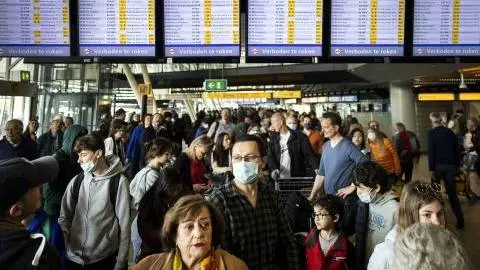3 calls for supply chains as extreme market conditions persist
Supply chain problems are here to stay in 2022. Looking ahead, shifts in demand will play a greater role, while structural changes to trade flows will gain momentum
Supply chains to remain fragile
Global supply chains should expect another few months of extreme market conditions with schedule reliability a long way off, delivery times prolonged, and transport receding lower but still highly elevated. Supply chains are fragile in their current state, and an interrupted weak link can easily lead to new setbacks. Once major shipping routes face delays, this leads to various destabilising knock-on effects.
Stringent Covid-19-related lockdown measures adopted in China, and the war in Ukraine, are keeping supply chains under pressure. The situation is likely to worsen in the autumn when the heating season begins with less energy supply from Russia.
The transportation industry is still suffering from a lack of equipment and personnel. Additionally, high inflation leads to increased worker strikes for better wages and working conditions, exacerbating the current situation.
Supply chain problems are certainly here to stay for the rest of the year.
Shifts in demand will play a greater role
Shifts in consumer patterns and extra inventory building from businesses have led to demand being overstretched. However, the extreme rise in energy and food prices has worsened purchasing power and pushed consumer confidence numbers back to levels last seen during the depths of the Covid-19 crisis.
Pent-up demand for travelling and other services has kept consumers spending so far, but that can change quickly. Additionally, new Covid waves in the autumn could strain activity and weigh further on demand. While the current backlog is enough to keep supply chains strained throughout the year, oversupply could re-emerge as an issue once demand drops off to more regular levels, which we expect to happen during the second half of the year. With demand for goods retreating, transportation companies could face an oversupply of containers and fleet capacity next year.
Structural changes to trade flows will gain momentum
As a result of the war in Ukraine, we believe that trade flows will be significantly reshaped as market players that previously purchased commodities and goods from Russia look for alternatives, while other countries step in to benefit from discounts. There will also be substitutions, like the replacement of piped gas with LNG and coal. This results in a new world economic order, being characterised by more ‘friend-shoring’ – trading relationships with countries that have long-standing relationships, cooperation and share similar values might become more valuable. Ethics may also become a more important consideration in trading. Yet, shifting trade flows due to moral considerations will be mainly done by wealthy countries. This opens completely new trade opportunities which in turn could boost global trade again.
Rerouting, diversification in suppliers and or regions, more stockpiling, and inventory building will shape trade relations in the years to come.
This publication has been prepared by ING solely for information purposes irrespective of a particular user's means, financial situation or investment objectives. The information does not constitute investment recommendation, and nor is it investment, legal or tax advice or an offer or solicitation to purchase or sell any financial instrument. Read more
Download
Download article
7 July 2022
ING Monthly: Europe’s recovery is cancelled This bundle contains 14 Articles
